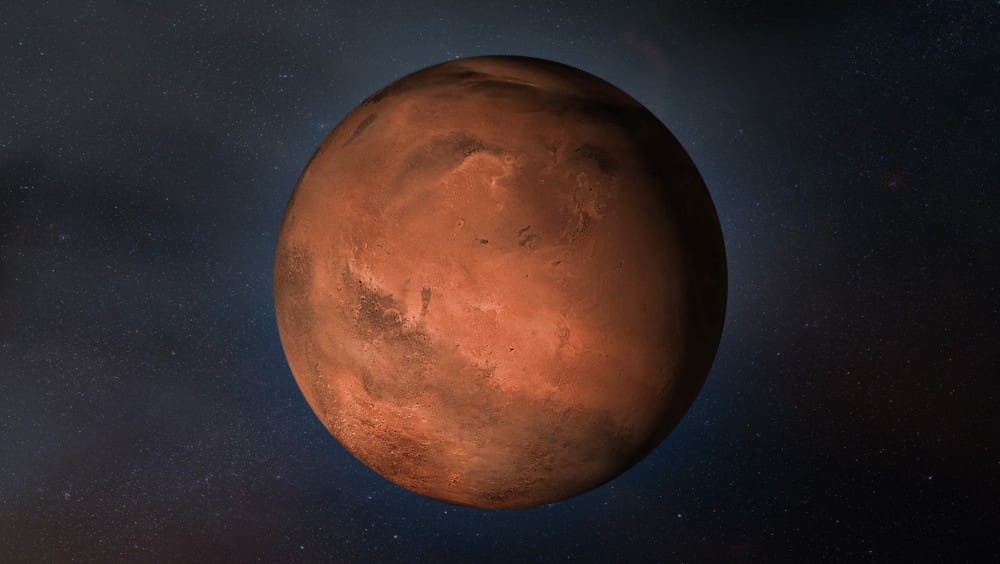In the celestial cabinet of Vedic Astrology, Mars, known as Mangal or Kuja, holds the formidable rank of Commander-in-Chief. This fiery red planet is the ultimate arbiter of action, energy, courage, and conflict, governing an individual’s raw ambition and physical vitality. Its placement within a person’s birth chart, or Janma Kundali, is a critical indicator of how they assert their will, confront challenges, pursue their goals, and manage aggression. Understanding Mars is to understand the very engine of one’s life force—a power that can build empires and protect the innocent, but when unchecked, can also incite arguments, accidents, and the notorious marital affliction known as Mangal Dosha.
The Core Nature of Mars: The Celestial Warrior
Mars is fundamentally a planet of kinetic energy. While other planets may influence thought, emotion, or wisdom, Mars impels one to do. Its nature is hot, dry, and masculine, ruling over the body’s muscles, blood, and metabolic processes. It represents the primal drive to survive, compete, and conquer.
In Hindu mythology, Mars is often associated with Kartikeya (also known as Murugan or Skanda), the son of Lord Shiva and the god of war. This connection perfectly encapsulates the planet’s highest expression: strategic, disciplined courage used for a righteous cause. A well-placed Mars bestows the qualities of a noble warrior—bravery, leadership, sharp logic, and an indomitable will.
Energy and Action
At its core, Mars is the spark that initiates action. It is the force that gets you out of bed in the morning and fuels your drive to accomplish tasks. A strong Mars in a chart indicates a person who is energetic, proactive, and decisive. They don’t wait for things to happen; they make them happen. This placement is often found in the charts of athletes, entrepreneurs, surgeons, and engineers—professions that require precision, drive, and physical or mental stamina.
Courage and Assertion
This planet governs our ability to face fear and stand up for ourselves. It is the source of our assertiveness and confidence. When Mars is strong and dignified, the individual is courageous and direct, able to defend their principles without being needlessly aggressive. A weak or afflicted Mars, however, can manifest as timidity, an inability to say “no,” or, conversely, a “chip on the shoulder” attitude born from insecurity.
Ambition and Competition
The desire to win is a purely Martian trait. It fuels the competitive spirit necessary for success in sports, business, and politics. Mars provides the ambition to set lofty goals and the relentless energy to pursue them. It thrives on challenge and sees life as a series of battles to be won, pushing the individual toward achievement and recognition.
Conflict and Aggression
The shadow side of Mars is its most infamous. When its energy is frustrated or poorly placed, it erupts as anger, impatience, and aggression. This can lead to arguments, physical altercations, and a tendency to be domineering. Mars also rules over sharp objects, fire, and accidents, so an afflicted Mars can increase a person’s vulnerability to injuries, burns, and surgical procedures.
Mars in the Zodiac Signs (Rashis)
The raw energy of Mars is filtered through the lens of the zodiac sign it occupies, dramatically altering its expression. Its strength and weakness are determined by its placement, most notably its signs of exaltation, debilitation, and rulership.
Exaltation and Debilitation
Mars is exalted in Capricorn (Makar), the sign of structure, discipline, and ambition. Here, the planet’s fiery impulsiveness is channeled with masterful precision. This placement creates a strategic genius—someone who applies their immense energy with patience and long-term planning, making them incredibly effective leaders and builders.
Conversely, Mars is debilitated in Cancer (Karka), the watery, emotional sign of the Moon. Fire and water are antithetical elements. This placement makes it difficult for the individual to express anger directly, often leading to passive-aggression, emotional outbursts, or suppressed frustrations that can manifest as psychosomatic health issues. The warrior is forced to act on an emotional, rather than logical, battlefield.
Own Signs: Aries and Scorpio
Mars rules two signs, giving it a powerful and comfortable expression in both. In Aries (Mesha), its primary or Moolatrikona sign, Mars is in its purest form: raw, impulsive, direct, and pioneering. This creates a courageous, independent individual who is a natural leader, though they may lack foresight and patience.
In Scorpio (Vrishchika), a fixed water sign, Mars’s energy becomes more controlled, secretive, and intense. The impulsiveness of Aries is replaced with strategic depth and resilience. This placement gives immense willpower, a penetrating mind, and the ability to transform and regenerate after facing crises.
Mars Through the Houses (Bhavas)
While the sign shows how Mars acts, the house (bhava) shows where in life its energy is focused. The house placement of Mars highlights the area of life that will be filled with action, potential conflict, and ambition.
Mars in the First House (Lagna)
When Mars occupies the Ascendant, it infuses the core personality with its fiery nature. These individuals are independent, dynamic, impulsive, and often physically athletic. They have a powerful presence and a “me first” attitude. However, this placement can also make them prone to anger, impatience, and head injuries, and it is the first position that constitutes Mangal Dosha.
Mars in the Tenth House (Karma Bhava)
This is considered one of the best placements for Mars, as it gives Dik Bala, or directional strength. The planet’s ambitious and competitive energy is channeled directly into the native’s career and public life. It creates a powerful drive for success and recognition, making it ideal for careers in the military, law enforcement, surgery, management, and professional sports.
Mars in the Seventh House (Kalatra Bhava)
The seventh house governs marriage and partnerships. With Mars here, relationships are often passionate and dynamic, but also highly susceptible to conflict, power struggles, and arguments. The individual may be drawn to assertive or aggressive partners, or they may be the one who brings a competitive edge to the union. This is a primary placement for Mangal Dosha, as it directly impacts the harmony of a partnership.
The Infamous Mangal Dosha (Kuja Dosha)
No discussion of Mars is complete without addressing the feared Mangal Dosha, also known as Kuja Dosha. This astrological condition is one of the most significant factors considered in horoscope matching for marriage in Hindu traditions.
What is Mangal Dosha?
Mangal Dosha occurs when Mars is placed in the 1st, 4th, 7th, 8th, or 12th house from the Ascendant (Lagna). Some astrological schools also include the 2nd house. The “dosha” or flaw arises because these houses are all critically linked to marital happiness, domestic peace, and the longevity of the partnership. Mars, being a natural malefic, brings its energy of conflict and separation to these sensitive areas.
- 1st House: The self; aggression in the personality affects the spouse.
- 4th House: Domestic happiness; Mars creates turmoil in the home environment.
- 7th House: The partner; Mars creates direct conflict and power struggles.
- 8th House: Marital longevity, in-laws; Mars can indicate severe disruptions or separation.
- 12th House: Bed pleasures, losses; Mars can cause sexual incompatibility or frustration.
The “Cancellation” of Mangal Dosha
It is crucial to understand that Mangal Dosha is not an inescapable curse. Its purpose is compatibility matching, not prohibition. The most common and effective “cancellation” occurs when both prospective partners have Mangal Dosha. In this case, the two fiery energies are said to balance each other out, leading to a dynamic and passionate, rather than destructive, union.
Furthermore, the dosha’s intensity is significantly reduced if Mars is in its own signs (Aries, Scorpio) or its exaltation sign (Capricorn). Strong, positive aspects from benefic planets like Jupiter can also mitigate the negative effects, providing wisdom and grace to handle the Martian energy.
Remedies for a Challenging Mars
For those with a difficult Mars placement, Vedic astrology offers numerous remedies designed to harmonize its energy rather than eliminate it. The goal is to channel the planet’s immense power constructively.
Lifestyle and Behavioral Adjustments
The most effective remedies are often practical. Engaging in regular, strenuous physical activity like sports, weightlifting, or martial arts provides a healthy outlet for Martian energy. Practicing anger management techniques, such as mindfulness or simply counting to ten before reacting, can tame its impulsive nature. On a symbolic level, donating blood (when medically safe and able) is a powerful traditional remedy, representing a controlled release of the body’s “fiery” fluid.
Spiritual and Astrological Remedies
Spiritual practices can also be highly effective. Worshipping deities associated with Mars, such as Lord Hanuman or Lord Kartikeya, is recommended, especially on Tuesdays, the day ruled by Mars. Chanting the Hanuman Chalisa is believed to provide protection and courage.
Wearing a high-quality red coral gemstone (Praval) can strengthen a weak Mars, but this must only be done after a detailed consultation with a qualified astrologer. If Mars is already strong but poorly placed, wearing its gemstone can amplify its negative qualities, making matters worse.
In conclusion, Mars is a planet of immense power and a vital force for survival, achievement, and progress. It is neither inherently good nor bad; it is pure energy that demands direction. A well-understood Mars in a birth chart can be a person’s greatest asset, providing the courage to overcome obstacles, the ambition to build a legacy, and the strength to protect what is cherished. An ignored or misunderstood Mars, however, can become a source of internal turmoil and external conflict. Ultimately, learning to master one’s inner warrior is a crucial step toward mastering one’s life path.








